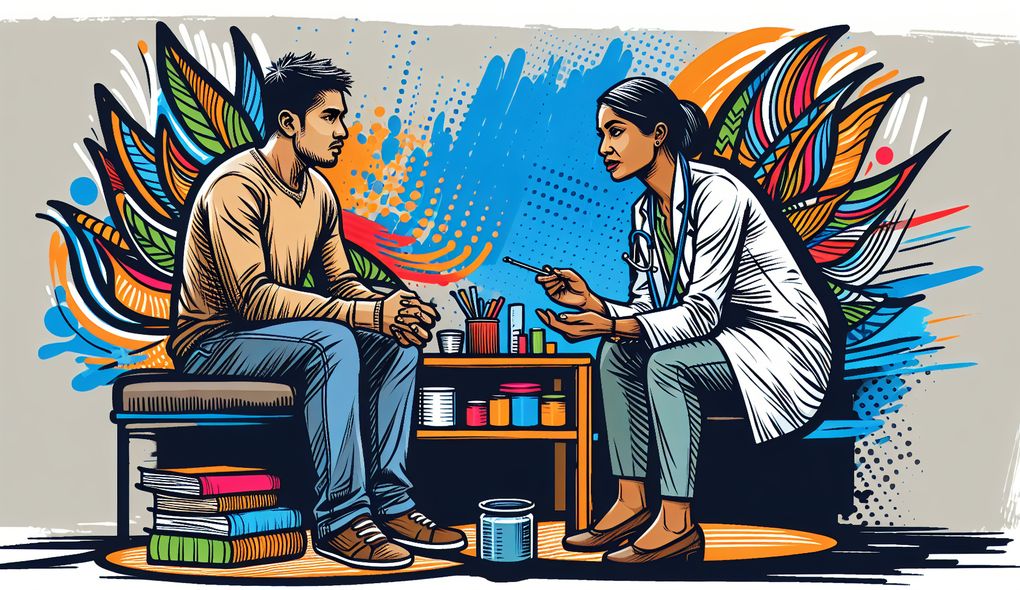How do you build rapport with clients in recovery?
INTERMEDIATE LEVEL

Sample answer to the question:
Building rapport with clients in recovery is essential for their progress and success. I believe in establishing a foundation of trust and respect. I actively listen to their concerns and validate their experiences, showing empathy and understanding. I make sure to create a safe and non-judgmental space where they can openly share their thoughts and feelings. Additionally, I involve them in the treatment planning process, making them active participants in their recovery. This helps them feel empowered and motivated. I also maintain clear and open communication, providing regular feedback and updates on their progress. Building rapport requires time and effort, but it is crucial for building a strong therapeutic relationship.
Here is a more solid answer:
Building rapport with clients in recovery is crucial to their progress and success. One way I do this is by actively listening to their concerns, validating their experiences, and showing empathy and understanding. For instance, when a client shares a challenging experience, I acknowledge their emotions and let them know that I can relate to their struggle. I also create a safe and non-judgmental space where they can freely express themselves. In addition, I involve clients in the treatment planning process, making them active participants in their recovery. This helps them feel empowered and motivated. Furthermore, I prioritize clear and open communication with clients, providing regular feedback and updates on their progress. To ensure confidentiality, I handle sensitive information with utmost care and follow ethical guidelines. These approaches have helped me build strong therapeutic relationships with clients and facilitate their recovery process.
Why is this a more solid answer?
The solid answer expands upon the basic answer by providing specific examples and details of past experiences that showcase interpersonal skills, communication skills, empathy, ability to handle sensitive information, good judgement, decision-making abilities, commitment to ethical standards, and experience in counseling. The answer aligns well with the job description and demonstrates a comprehensive understanding of building rapport with clients in recovery. However, it can be further improved by adding more examples of successful outcomes and specific techniques used in treatment planning and therapy sessions.
An example of a exceptional answer:
Building rapport with clients in recovery is a fundamental aspect of my counseling approach. I prioritize creating a warm and welcoming environment where clients feel safe, supported, and validated. For example, during intake assessments, I take the time to understand their unique backgrounds, experiences, and treatment goals. This allows me to tailor treatment plans that address their specific needs and challenges. In therapy sessions, I utilize evidence-based techniques such as motivational interviewing, cognitive-behavioral therapy, and mindfulness practices. These approaches enable clients to explore the underlying causes of their substance abuse, develop healthy coping strategies, and strengthen their recovery skills. I also collaborate with an interdisciplinary team to provide comprehensive and holistic care. This multidimensional approach ensures that clients receive the support they need in every aspect of their lives. By consistently demonstrating compassion, good judgment, and professionalism, I have successfully built strong therapeutic relationships with clients and witnessed their transformative journeys of recovery.
Why is this an exceptional answer?
The exceptional answer goes above and beyond by providing specific examples and techniques used in building rapport with clients in recovery. It demonstrates a deep understanding of evidence-based therapy techniques and emphasizes the importance of tailoring treatment plans to address individual needs. The answer also highlights the collaboration with an interdisciplinary team, showcasing the ability to work independently and as part of a team. Additionally, it showcases a commitment to ongoing professional development and aligns perfectly with the job description. However, to further enhance the answer, the candidate could provide more examples of successful outcomes and specific strategies for relapse prevention education and coping skills development.
How to prepare for this question:
- Familiarize yourself with evidence-based therapy techniques commonly used in substance abuse counseling, such as motivational interviewing and cognitive-behavioral therapy.
- Reflect on past experiences where you successfully built rapport with clients in recovery. Be prepared to discuss specific examples and outcomes.
- Research and understand the ethical guidelines and confidentiality requirements in substance abuse counseling.
- Practice active listening and empathy skills. Consider how you would handle challenging situations and validate clients' experiences.
- Stay up to date with current research and developments in the field of substance abuse counseling, including treatment modalities and relapse prevention strategies.
What are interviewers evaluating with this question?
- Interpersonal skills
- Communication skills
- Empathy and patience
- Ability to handle sensitive information
- Good judgement and decision-making
- Commitment to ethical standards
- Experience in counseling

